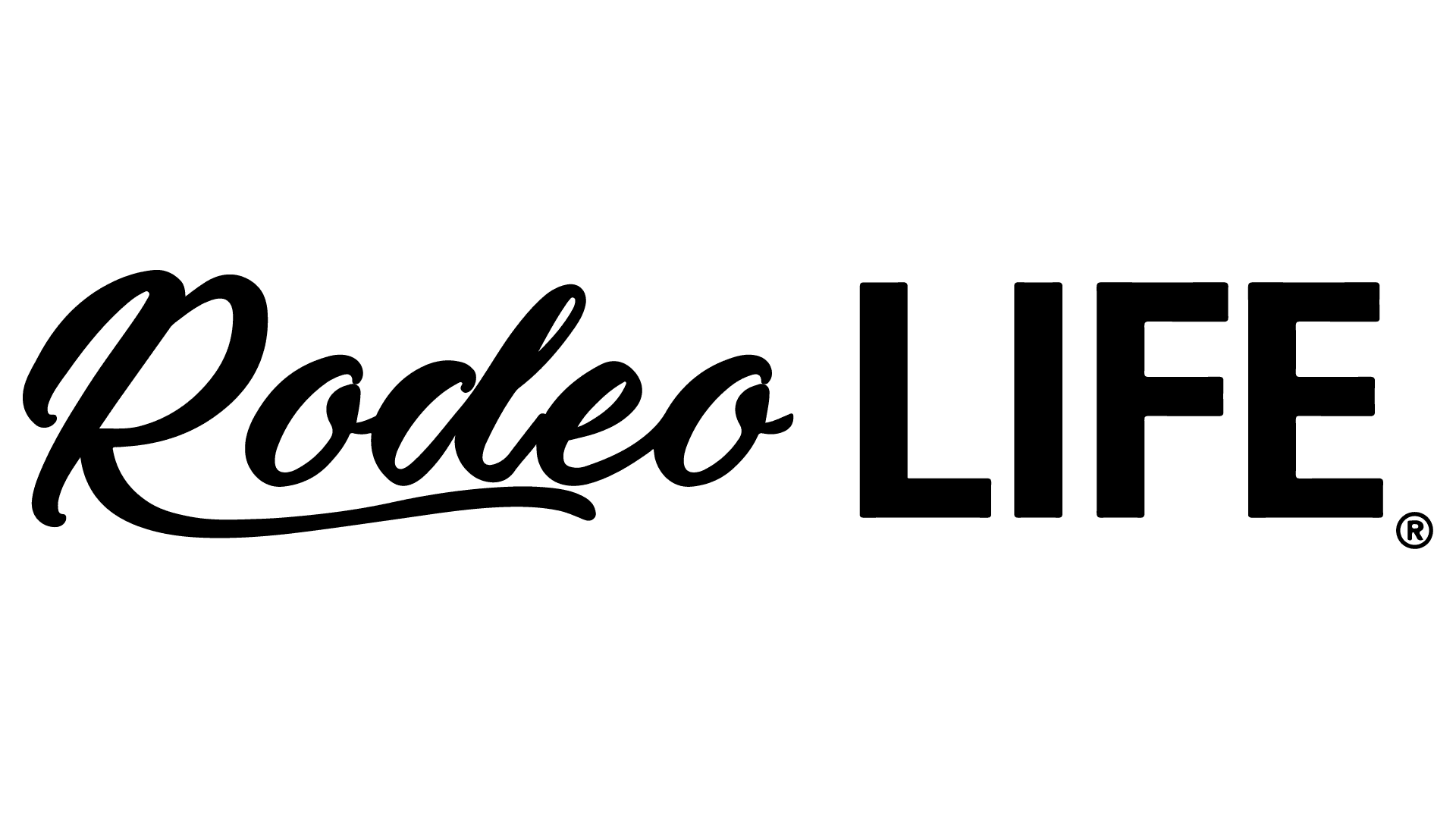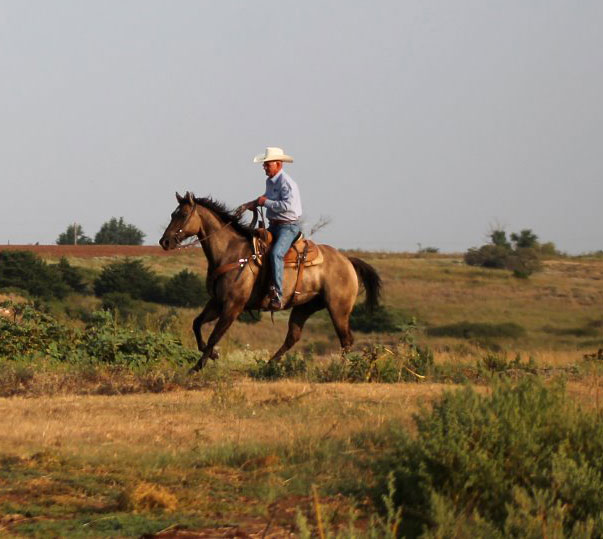Butch Stewart spurred his first bronc in the IPRA — known then as the IRA — in 1966 as a senior in high school. It was the start of a long and wide-ranging career in the association, from winning World Champion Bareback Rider in 1973, to working as an IPRA field representative, and eventually, serving as the executive director for five years. “One of the things I admire and respect about Butch is his integrity,” says IPRA General Manager, Dale Yerigan. “He’s an old-school, look you in the eye and tell you the truth kind of guy. When he tells you something, you don’t have to wonder if he’s going to do what he says.”
Butch was born into that dependable lifestyle in 1946 on the ranch his dad, Bill, managed in Arkansas. The family later moved to North Carolina, and Butch and his three brothers all rodeoed. His two older brothers, Billy and Jim Bob, competed in timed events, and his younger brother, Ricky, rode bulls. Their dad rodeoed, but he passed away when Butch was 10. “I’d go to the rodeos in my early days, and the bareback riding would be the event I’d watch. Why I don’t know, but that’s what I wanted to be,” Butch recalls. “There were no rodeo schools, but when I was 13 or 14, there was a horse trader in town and my family was good friends with him. He would have something he thought might buck, and I just started getting on them. When I got up into high school, I went to rodeos in North Carolina and South Carolina and Georgia. It took me forever before I won any money, but I never did give up. One night at a rodeo, it just clicked, and from that point on my skills got better and better, but I really had to work on it. I won second at Rock Hill (South Carolina) and won $57, and I thought there would never be another dry time.”
Butch continued practicing on anything that would buck and traveled to rodeos with his older brother or his good friend Charles Malcolm, a bull rider who also helped Butch in the bareback riding. In 1966, Butch bought his IRA card and ventured into Florida for several rodeos, where he met Harry Watt of Meeker, Colorado. “Harry rodeoed for a living, and I told him I was going to graduate from high school and (asked) what would be the chances of me getting in and going to rodeos with him. He’s a very plain-spoken person, and he said, ‘Just tell me where you want me to pick you up. But I tell you right now, you hold your end up or you can go home.’” Butch graduated and left the same night on a Greyhound bus to meet Harry. “My mother, Pauline, was standing in the door just bawling. I stayed in contact with her and my oldest brother, and I’d call once a week.”
While in the past Butch made it to 15 rodeos a year at most, he and Harry entered 120 rodeos in 1966 throughout the eastern half of the country. Butch would eventually rodeo as far away as California, and even tried bull riding, but he primarily entered on the IRA circuit. He and Harry traveled in the Coloradoan’s single-cab pickup and camper, minus air conditioning, with as many as four other cowboys joining them at times. “I loved it! I couldn’t get to enough of them,” says Butch. “Those first rodeos we went to I drew some great horses and won first, and everything just clicked. Harry taught me how to get to rodeos, where to go, and how to enter. He’s been a great friend and we still talk all the time, and he’s the one who really taught me how to rodeo.”
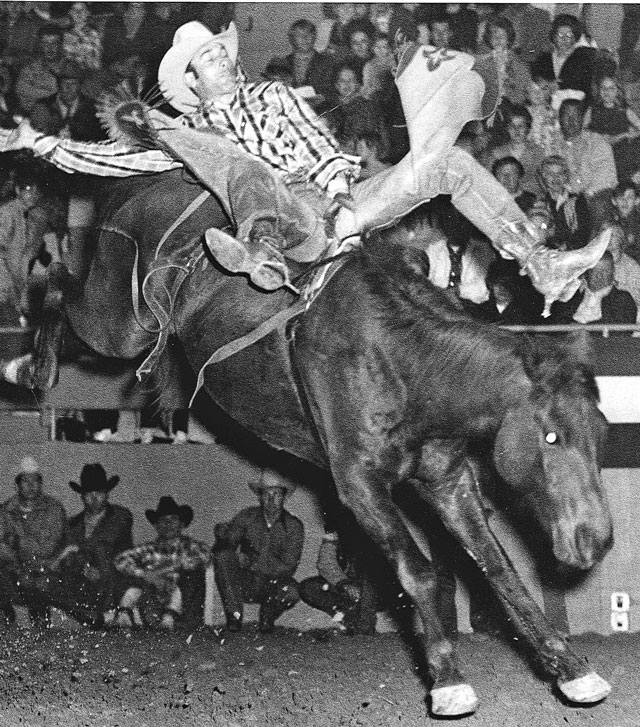
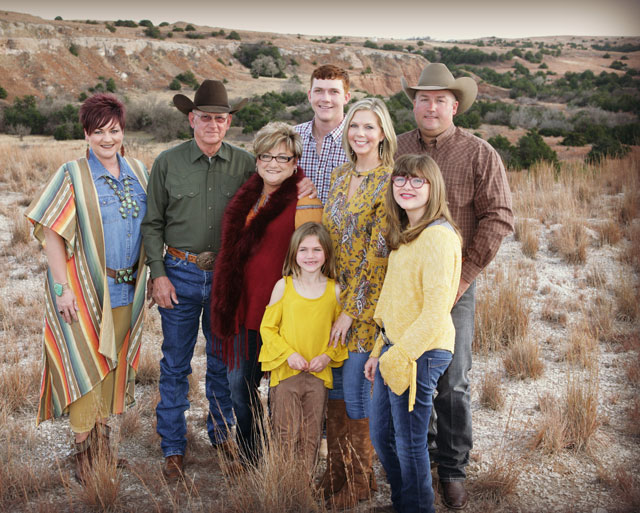
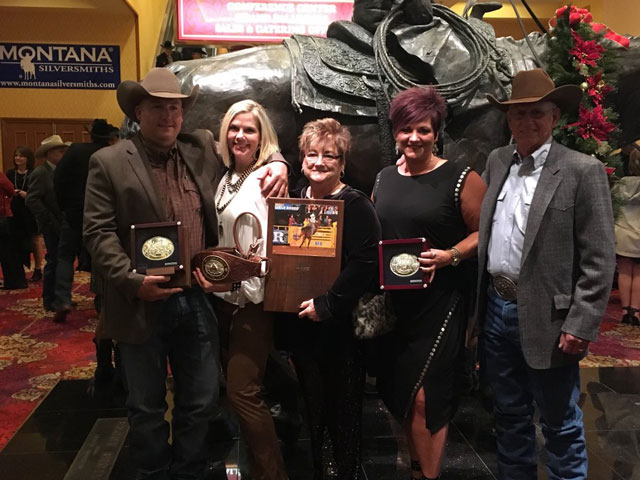
Butch had to set his gear bag aside when he was drafted into the Army in 1967, but after serving two years in Germany, he returned to the IRA. By that time, he had a world title on his mind and was runner up to the IRA world bareback riding champion in 1971 and 1972. “I went back home in the fall of ’72 and saw a friend of mine, R.D. Thompson. We went to school together and he was a teacher and a coach, and he wanted to know what I was doing. I told him I got real close to winning a world title the year before. He said, ‘You can win if you want it worse than anybody else,’ and that stuck in my mind. That following year I won my world title. Maybe my skills got to a higher level, but it was just the want-to. I set my sights on something and I went after it. It was a great feeling.”
Several years before winning the world title, Butch met his future wife, Brenda, at a rodeo in Eunice, Louisiana. They were married in 1971, and Brenda’s background in ranching and high school rodeoing fit the newlywed’s lifestyle like a hand to a roping glove. She worked with the IRA on merchandise while Butch worked for the association as a field representative from 1977 to 1983. He traveled often and worked with current stock contractors and recruited new ones, along with staying in touch with the contestants. Once Butch and Brenda’s two children, Heath and Carissa, were born, however, he wanted to stay closer to home. Butch took a job managing several large cattle ranches in North Carolina and Oklahoma from 1983 — when he retired from rodeo — until 1999.
The family moved from ranch to ranch sometimes every six or seven years, and the ranching lifestyle and Butch’s work in the IPRA proved valuable for his children. Carissa started working in the association in the early ‘90s as a receptionist and is now in charge of the IPRA rodeo sanctions, results, and standings. Heath started working with Jerry Nelson’s Frontier Rodeo Company in the early ‘90s as well, and is now the rodeo manager of the company. “Dad ran Five R Rodeo Company for a guy, and he always made sure his family was taken care of, and the livestock, before he went on the road,” says Heath, who took 18 horses and two bulls to the 2017 WNFR. “He took good care of things and has a good work ethic.” Heath’s sister, Carissa, adds, “I’m glad my dad chose to be a rodeo cowboy back in the day. The people you meet in rodeo become your rodeo family, and some of my lifelong friends I met through my dad rodeoing.” When Butch returned to work in the IPRA in 1999, Brenda started helping with the IFR, the IPRA convention credentials and check-in, and securing sponsors to cater food for the VIP room.
In 2002, Butch became the executive director. “It was the day-to-day business of running the association, the bills, the IFR, the sponsorships, and the contestants’ needs and concerns,” says Butch. He and Ronnie Williams, a longtime IPRA member and former executive director, were also instrumental in working with the governor of Oklahoma at the time, Frank Keating, on declaring the third week of January “IFR Week.” “I enjoyed seeing the success of the association and the new contestants coming on, the friends that you meet, the awesome staff, and the people in Oklahoma City that we worked with.”
Butch retired from his job as executive director in 2007 and managed a ranch in Davis, Oklahoma, for six years until it was sold. Presently, he works for Jerry Nelson’s Frontier Rodeo Company in Freedom, Oklahoma, feeding the livestock and running the ranch when the crew is on the road. “I really love what I’m doing, being around these bucking horses, and Brenda and I are very proud of our two kids and our grandkids.” He and Brenda make their home just a few hundred yards from Heath and his wife, Shay, and their children, Jade, Brooke, and Chase, who is on the Northwestern Oklahoma State University rodeo team. Butch is happiest caring for the equine athletes who made his rodeo career possible, but he often travels to the WNFR, and he never misses an IFR. “I tell them if there’s anything I need to do for them, I’m glad to do that, but I just have a good time, sit back and watch, and visit with old friends.”
